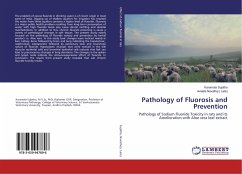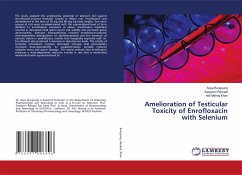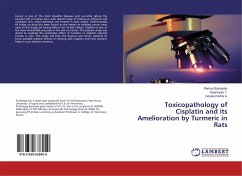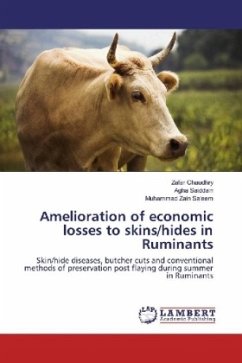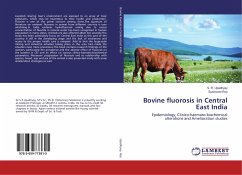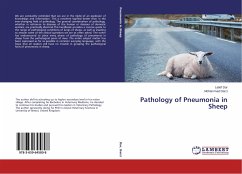The problem of excess fluoride in drinking water is of recent origin in most parts of India. Digging up of shallow aquifers for irrigation has resulted the water from these aquifers contains a higher level of fluoride. Fluorosis is a major public health problem resulting from long-term consumption of water with high fluoride levels may cause dental mottling and skeletal manifestations. In addition to this, chronic fluoride poisoning is cause a variety of pathological changes in soft tissues. The present study mainly focused on the pathology of fluoride toxicity and prevention by herbal product i.e. Aloe vera. In this study toxic changes were noticed mainly in liver, kidney, bone followed by brain and lung indicating the hepatotoxic, nephrotoxic, osteoporotic followed by pulmonary toxic and neurotoxic nature of fluoride. Hyperplastic changes that were noticed in the bile ductular epithelial cells and bronchial epithelial cells indicate that NaF can lead to precancerous changes in long durations. The changes in the spleen and lymph node indicate the immunosuppressive effect of fluoride. In conclusion, the results from present study revealed that sub chronic fluoride toxicity results.
Bitte wählen Sie Ihr Anliegen aus.
Rechnungen
Retourenschein anfordern
Bestellstatus
Storno

